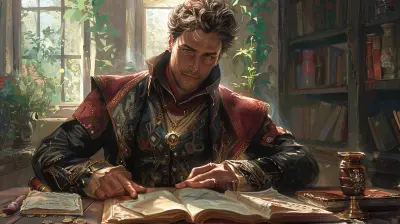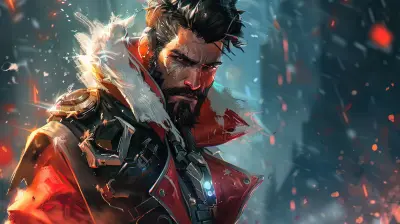Best Video Games That Changed The Industry Forever
23 October 2025
When we talk about the evolution of video games, it’s not just about better graphics or faster load times. Some games have literally redefined what a game could be. They didn’t just entertain us — they shaped the very DNA of the industry. Whether it's a breakthrough in storytelling, groundbreaking mechanics, or just pure cultural impact, these iconic titles shifted the entire gaming landscape.
So, let’s take a nostalgic (and sometimes jaw-dropping) dive into the best video games that changed the industry forever. Spoiler alert: you’re about to revisit some absolute legends!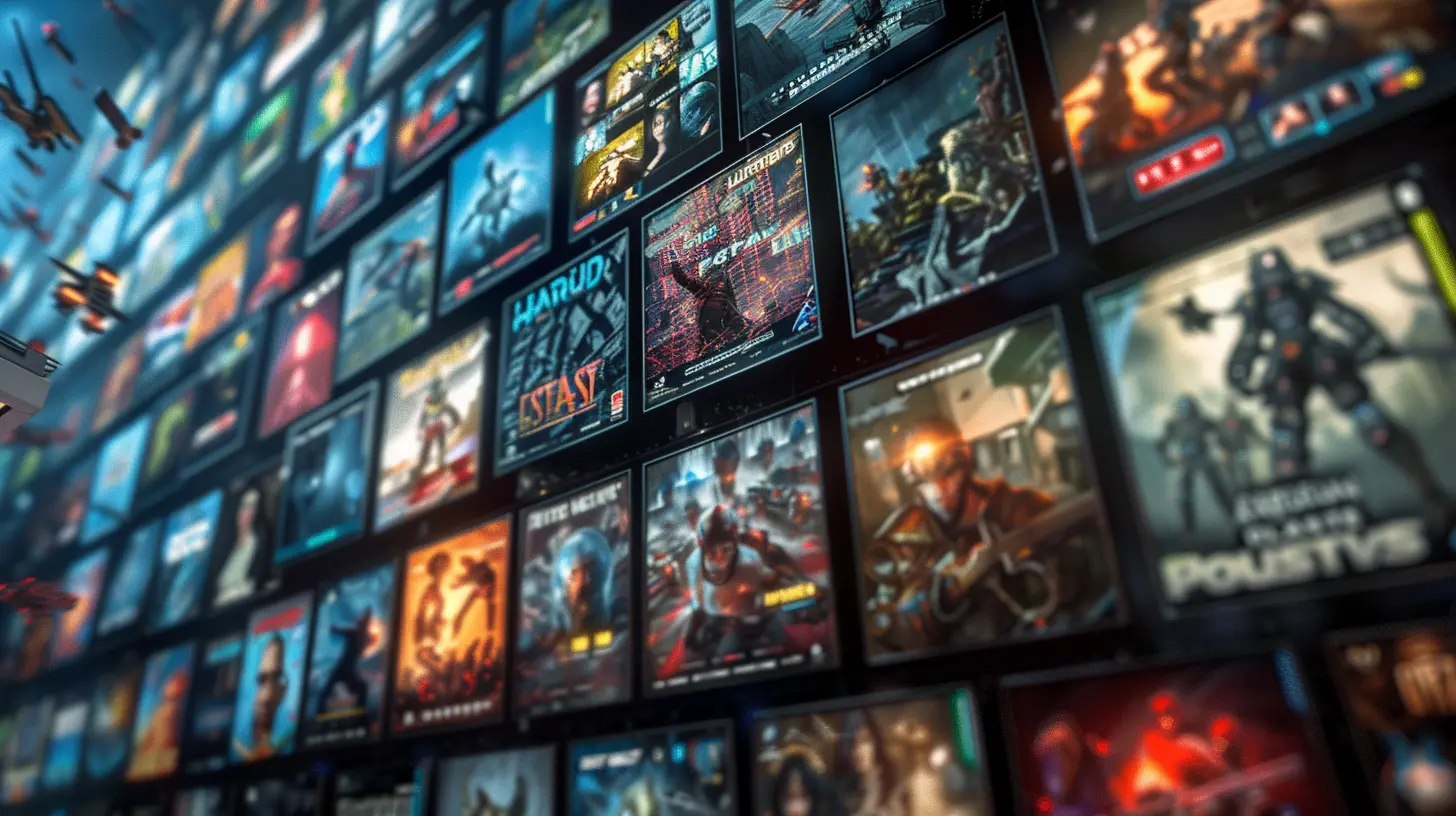
Pong – The Pixel That Started It All
Let’s kick it off with the OG — Pong. Released in 1972, this arcade classic was essentially a digital table tennis game. Sounds simple, right? But it laid the foundation for the entire gaming industry.Before Pong, video games were more of an experimental thing hidden in labs and universities. But with its commercial success, Pong proved that gaming could be profitable — and fun as heck.
We’re talking standing in front of a big, chunky machine, twisting a dial like your life depended on it, and trying to bounce a square pixel across the screen. And people loved it. In fact, they loved it so much that it kickstarted the arcade boom and gave birth to the first wave of game developers.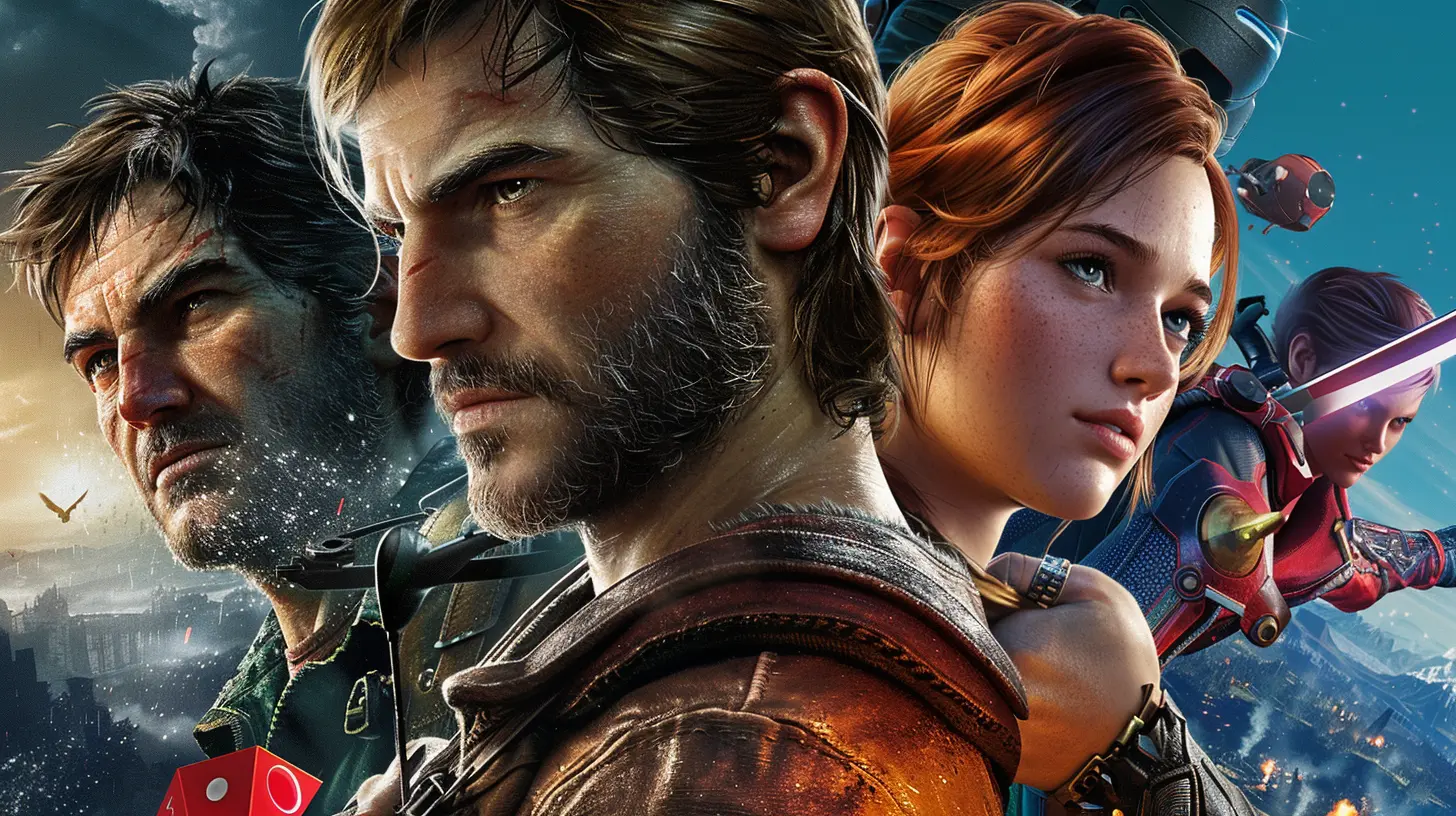
Super Mario Bros. – Side-Scrolling into Greatness
Fast forward to 1985 and boom — Super Mario Bros. hits the NES like a fireball. Now, this wasn’t Nintendo’s first game, but it was the one that redefined what platformers could be.Why was it such a big deal? It introduced fluid side-scrolling gameplay, tight controls, and a whimsical yet challenging level design. Plus, it revived the home console market after the video game crash of 1983. That’s no small feat!
This game gave us Mario, Luigi, Bowser, and the idea that saving a princess could be a lifelong mission — literally. Every platformer today still owes a nod (and probably a whole mushroom kingdom) to this masterpiece.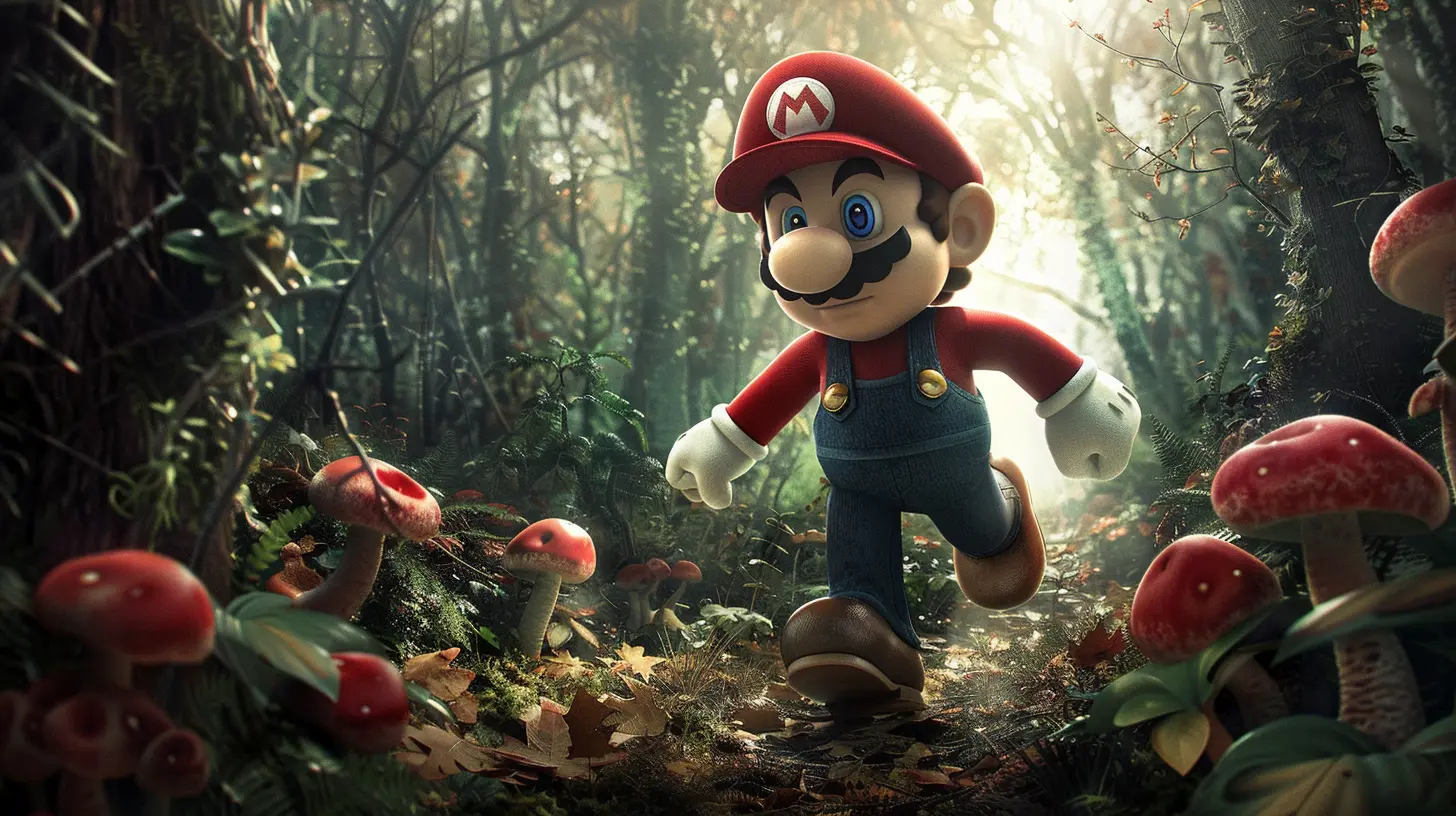
The Legend of Zelda – Adventure Reimagined
Imagine being dropped into a world with no map, no hand-holding, and just your curiosity to guide you. That’s what The Legend of Zelda did in 1986. It wasn’t just a game — it was an odyssey.Zelda introduced open-world exploration long before it was trendy. It had puzzles that made you think, dungeons that felt like true challenges, and a story rooted in mythology and mystery.
More importantly, it was the first game with a battery-backed save feature. Yes, saving your game. Before this, you had to finish your game in one sitting or use save codes. Sounds archaic now, right?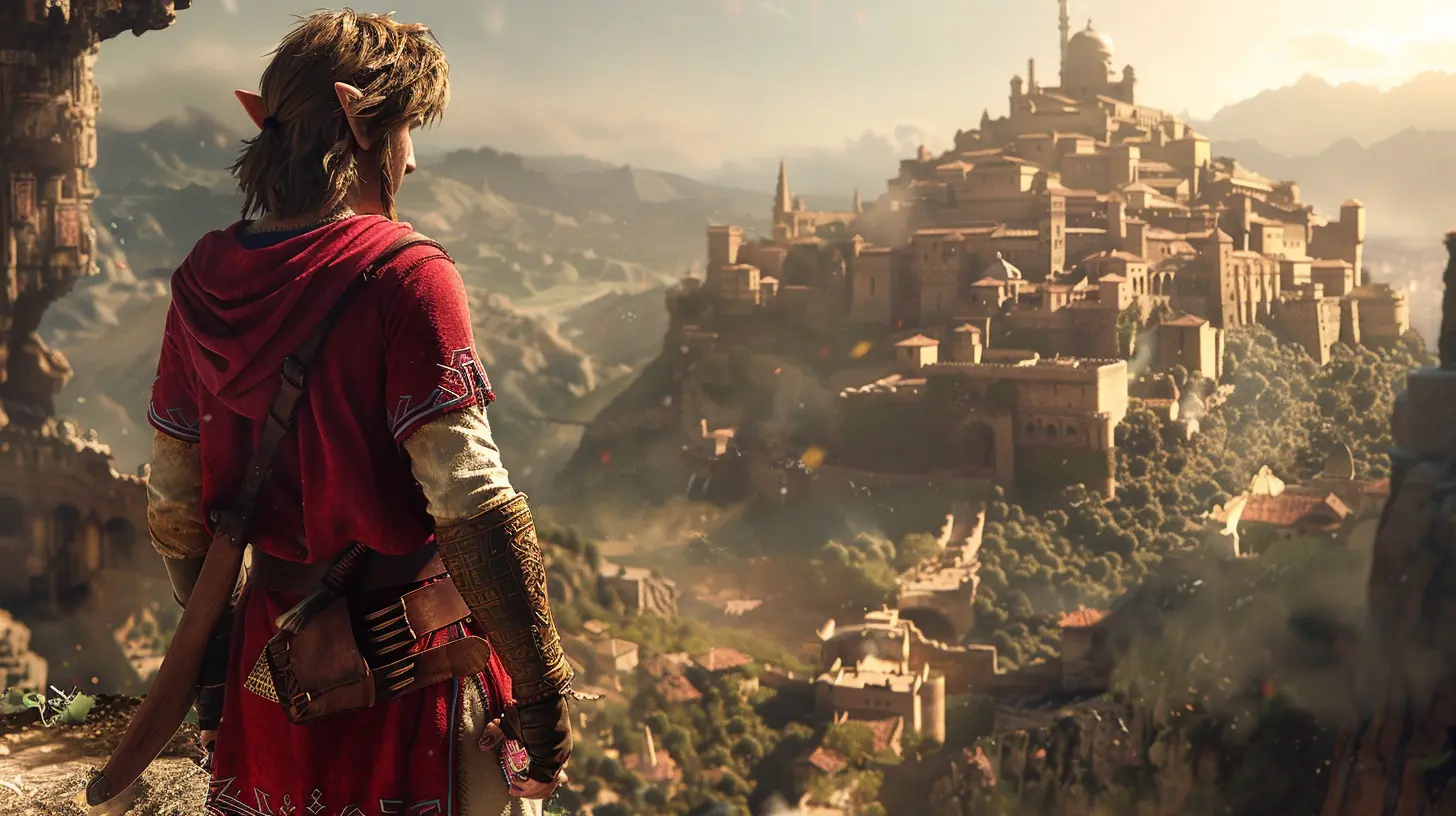
Doom – The Birth of FPS Royalty
In 1993, Doom burst through the gaming doors with a shotgun in one hand and a chainsaw in the other. It introduced millions to the first-person shooter (FPS) genre and basically said, "Welcome to Hell. Good luck."Doom didn’t just bring intense gameplay — it brought modding, LAN multiplayer, and the kind of adrenaline-pumping action that glued players to their keyboards for hours. It ran on school computers, office machines, and anything that could handle the demon-slaying madness.
Thanks to Doom, we got Half-Life, Quake, Halo, Call of Duty — all standing on the blood-soaked shoulders of this classic.
Final Fantasy VII – Cinematic Storytelling at Its Finest
If you’ve ever cried over a game—or at least got misty-eyed—there’s a good chance it was during Final Fantasy VII. Released in 1997, this game was a massive leap in storytelling, character development, and emotional impact.Before this, RPGs had depth, sure, but FFVII brought it to the mainstream with full-motion video, 3D graphics, and a sprawling narrative that felt more like a movie than a game. Cloud, Aerith, Sephiroth — they became household names among gamers overnight.
It’s also the reason why millions of people went out and bought a PlayStation. Talk about being a console seller.
Half-Life – The FPS Revolution Continues
Valve’s Half-Life wasn’t just another shooter. Released in 1998, it combined narrative, atmosphere, and pacing in a way that completely changed how FPS games were made.No cutscenes. No sudden breaks. Just seamless storytelling through the eyes of Gordon Freeman. It set the bar for immersive world-building and intelligent enemy AI.
Without Half-Life, you don’t get games like Bioshock, Portal, or even Call of Duty as we know it today. And speaking of Portal...
Portal – Puzzles, Portals, and Pure Genius
Let’s take a moment to appreciate Portal — a puzzle game released quietly with The Orange Box in 2007 that ended up being a cultural phenomenon.Armed with a portal gun and your wits, you navigated mind-bending rooms, all while listening to the sarcastic, deadpan humor of GLaDOS. It was short, but it was mind-blowingly unique.
From the innovative gameplay to the unforgettable ending song, Portal showed that games could be clever, funny, mentally challenging... and disturbingly philosophical.
Grand Theft Auto III – Open-World Chaos Begins
When GTA III hit the PlayStation 2 in 2001, the world went, "Wait… I can do anything?"That’s basically what this game introduced — a living, breathing open world where you could drive any car, punch random passers-by, listen to in-game radio, or follow a rich storyline. The choice was yours.
It redefined the sandbox genre and gave players unprecedented freedom. Love it or hate it, GTA III sparked one of the most influential franchises in gaming history.
World of Warcraft – The MMO Titan
2004 was a wild year for MMOs because World of Warcraft (WoW) arrived and took over the world — quite literally.It wasn’t the first MMORPG, but it streamlined the genre, added lush lore, and created an ecosystem where millions logged in daily to raid, quest, and just hang out with friends.
It was basically your second (or primary) life. Guilds formed real friendships, virtual economies thrived, and "Leeroy Jenkins" became a meme before memes were even a thing.
Minecraft – Blocks Built a Legacy
In 2011, a little indie game stepped onto the stage and said, "Here's a pickaxe. Go wild." That game was Minecraft.With its pixelated graphics and endless sandbox freedom, Minecraft turned players into architects, explorers, and storytellers. It showed that player creativity was just as important as the developer’s design.
Whether you're building a castle, surviving the night, or recreating Westeros block by block, Minecraft became the blueprint for sandbox games and inspired a new generation of creators.
The Last of Us – Emotional Realism in Gaming
When The Last of Us dropped in 2013, gamers weren't ready for that emotional rollercoaster. With its gut-wrenching opening scene to that powerful finale, TLOU redefined emotional storytelling in games.It blended cinematic quality with third-person action and deeply human characters. Joel and Ellie weren’t superheroes — they were flawed, raw, and incredibly real.
More importantly, it proved to non-gamers that video games could tell stories just as impactful as any Hollywood blockbuster.
Fortnite – A Cultural Earthquake
Love it or hate it, no list is complete without Fortnite. What started as a quirky tower-defense game turned into the battle royale behemoth of the century.It changed how games were played, updated, and monetized. Weekly updates? Check. Live concerts and movie trailers in-game? Yup. Emotes that go viral on TikTok? You bet.
It was more than a game — it became a cultural platform, a digital hangout, and a marketing juggernaut.
Honorable Mentions (Because We Couldn’t Stop at Just 12)
- Tetris – Simple, addictive, and possibly installed on more devices than any other game.- Pac-Man – The first mascot character and the first game to really appeal to a wider demographic.
- Metal Gear Solid – Stealth gameplay and cinematic storytelling that defined a new genre.
- E.T. the Extra-Terrestrial – Not for being great, but for being so bad it nearly killed the entire gaming industry.
- Wii Sports – Proved that motion controls could be universally fun, even for grandma.
Final Thoughts
Gaming has always been about more than pixels on a screen. It’s about innovation, pushing boundaries, and connecting people in ways we never imagined. The games on this list didn’t just entertain us — they changed the rules, redefined genres, and opened doors for what video games can truly be.Whether you were there from the days of Pong or joined in with Fortnite, one thing’s clear: the best video games that changed the industry forever continue to inspire generations of gamers and creators alike.
And let's be honest — the best might still be yet to come.
all images in this post were generated using AI tools
Category:
Best Video GamesAuthor:

Luke Baker
Discussion
rate this article
1 comments
Gunner Hodge
Ah, the pixelated revolution! From jumping plumbers to alien rescue missions, these games didn’t just change the industry; they rewrote the rulebook with glitter and chaos! Who knew a floppy disk could spawn a multi-billion dollar universe? Here’s to the controllers that shaped our digital dreams!
October 25, 2025 at 3:36 AM

Luke Baker
Absolutely! Those early games laid the foundation for everything we enjoy today, proving that creativity knows no bounds—even on a floppy disk!

